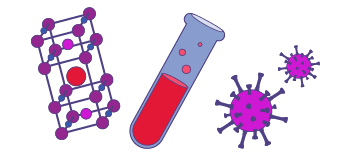In a collaboration with Agilent we have developed a probe with extraordinary sensitivity for solution NMR studies of chemicals produced by biological organisms. This probe, which now operates at UF’s AMRIS NMR facility, is based on high temperature superconductor (HTS) technology. It is the first HTS probe to use a 1.5-mm sample tube, and also the first HTS probe to have triple resonance capability, allowing it to be used for mass-limited proteins as well as smaller molecules.
Name of this techniques that available in Tallahassee is HTS Probe for 13C detection – natural products and metabolomics.
This probe delivers the highest mass sensitivity of any probe at any frequency in the world. For more information about how our liquid-state spectrometers may meet your mini-/micro-sample needs, please contact James Rocca. Generally speaking, our 600-MHz instruments equipped with cryogenically-cooled radio-frequency (RF) probes will provide you with the best sensitivity for proton(1H)-detected spectra. Both spectrometers have commercial 5-mm indirect-detection cryogenic probes. Additionally, there are occasionally available unique, prototype high-temperature-superconducting (HTS) cryogenic "RF micro-probes" that may be more suitable for your sample.
If you are already familiar with Bruker's TopSpin software or Agilent’s VNMR-J software, then Mr. Rocca can provide a check-out for you on either spectrometer. Also contact him if you require training for solution NMR on any of of these systems, or prefer to simply have an operator provided for your sample analysis on one of the spectrometers.
The following spectrometers are available for this technique:
The following probes are available for this technique:

Explore our magnet schedule to see what exciting research is happening on our stellar fleet of instruments right now.
Last modified on 06 October 2023